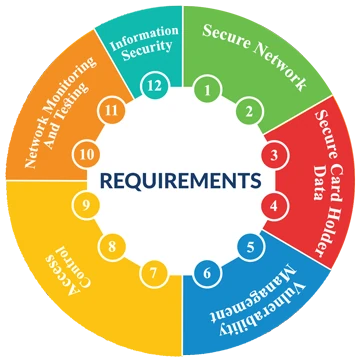Rising Threats in Digital Payments.
The shift towards a cashless economy has accelerated the adoption of digital payments, but it has also opened doors to growing cyber threats....
Companies that carry out any type of payment transaction via credit, debit, or other cards, whether online, offline, or through any other channel, expose themselves to the risk of cybercrime, particularly if they don't have PCI DSS compliance and certification. Malicious Attackers always target such highly confidential and sensitive information (CHD/SAD) for direct theft and fraud. If your company is part of the Payment ecosystem as a Merchant, Processor, or providing any services to these companies can also fall victim to these kinds of cyberattacks. To mitigate these risks, the Security Standards Council (SSC) of the Payment Card Industry (PCI) has formulated numerous controls across several security standards to keep companies and consumers protected. Read more about PCI SSC Standards.
One of such very highly praised security standard is PCI DSS. The Payment Card Industry Data Security Standard (PCI DSS) is a widely accepted global standard recommended by the major Card brands like Visa, Mastercard, JCB, American Express, Discovery. PCI DSS standard is consisting of set of policies and procedures intended to optimize the security of credit, debit and cash card transactions and protect cardholders against misuse of their personal information.

PCI DSS applies to all entities involved in payment card transactions —including merchants, processors, acquirers, issuers, and service providers, as well as all other entities that store, process or transmit cardholder data (CHD) and/or sensitive authentication data (SAD).
Majorly all payment card brands enforcing PCI DSS Audit at minimum annual basis as per the Levels determined by the various security programmes. Organization needs to Implement 12 core requirements spread across 6 Control Objectives from PCI DSS Standard to ensure their Card Holder Data Environment is secured. Read more about the PCI DSS 4.0 Core 12 Requirements.
Merchants and Service Providers can report their PCI DSS Assessment Compliance either Filling applicable the Self Assessment Questionnaire (SAQ’s) or Onsite Assessment by a Qualified Security Assessor as per their Levels. Read our blog ‘Understanding Various Levels of Merchants and Service Providers.
PCI DSS 4.0 is the latest version introduced by the PCI Council on 31st March 2022. All entities get two years’ time for the transition from 3.2.1 to 4.0 i.e., March 2024 if they are already certified for PCI DSS 3.2.1.
The key to implementing robust security controls lies in identifying the right scope, recognizing the difference between compliance and security and in sustaining compliance after successful control implementation.